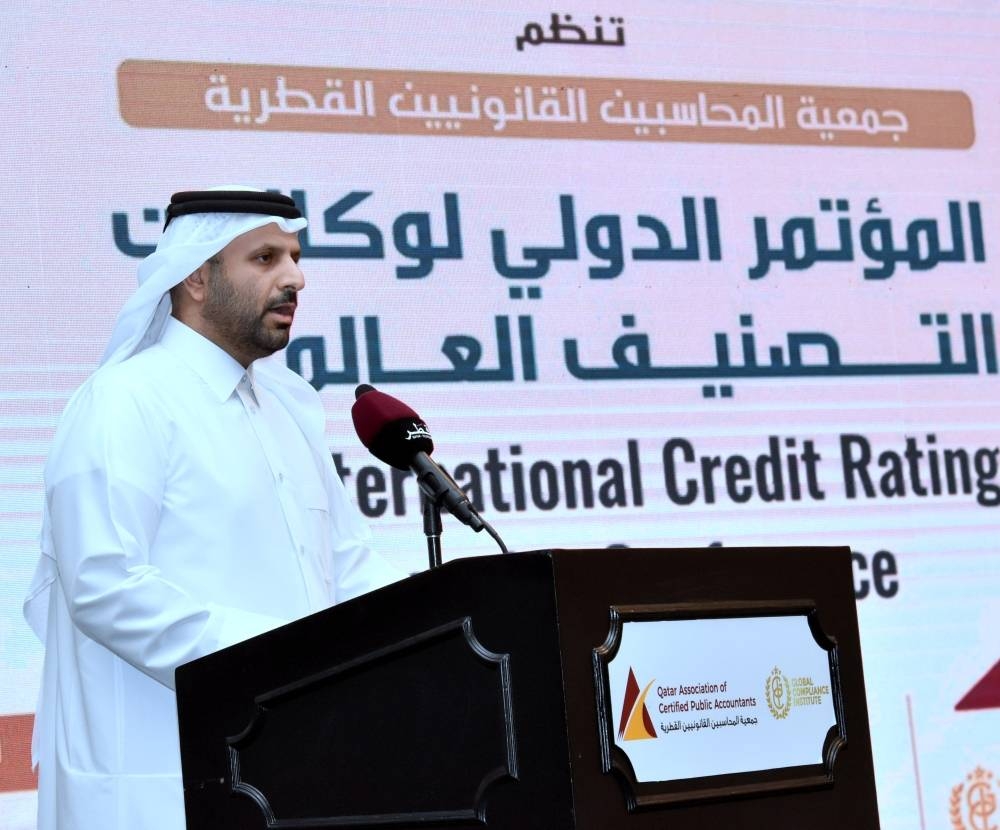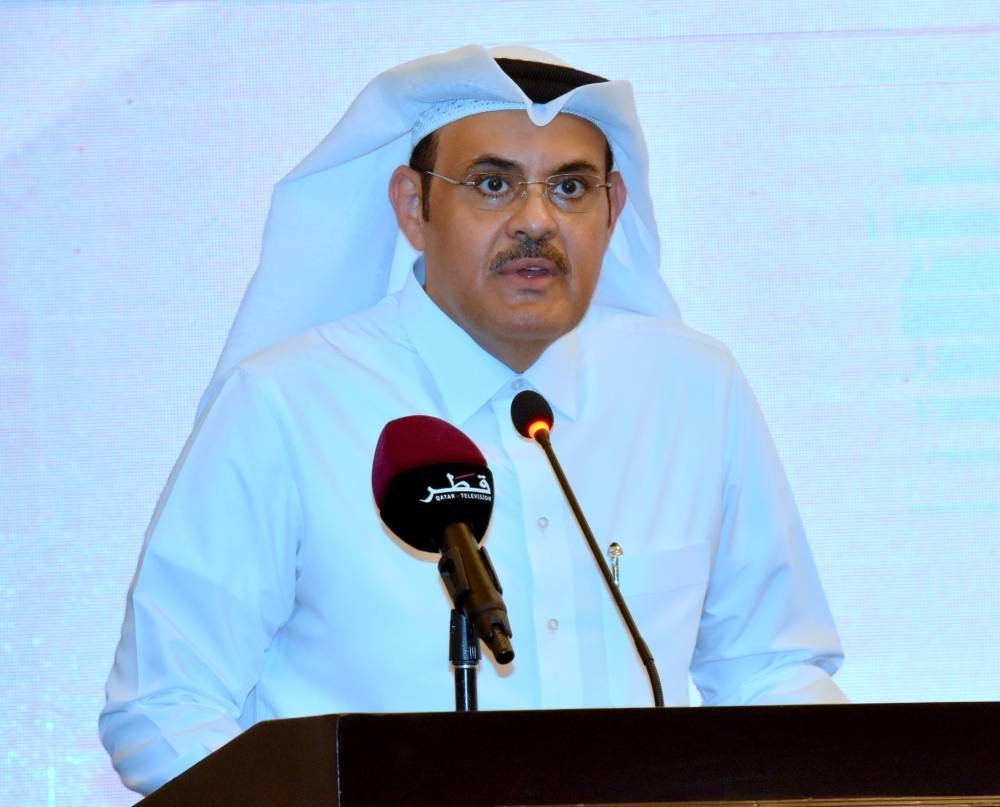The successful hosting of the FIFA World Cup Qatar 2022 and optimistic expectations of the country’s economic growth in 2023 reflect the state of Qatar’s political and economic stability, which makes it “a fertile soil for investment and growth,” according to a finance and business administration expert.
Ahmad al-Mansoori, board deputy chairman of the Qatar Association of Certified Public Accountants (QCPA), made the statement during the ‘International Credit Rating Agencies Conference’ held in Doha Monday.
The event was held through the auspices of HE the Minister of Social Development and Family Maryam bint Ali bin Nasser al-Misnad and in partnership with Moody’s, the Global Compliance Institute, and S&P Global.
In his speech, al-Mansoori described 2022 as “an exceptional year,” saying the Qatari economy showed “record performance,” especially during the staging of the FIFA World Cup.
Citing the latest World Bank report, al-Mansoori said Qatar’s economy would achieve growth of about “3.4%” this year. He said the World Bank also estimates that the Qatari economy would have achieved a “4%” growth in 2022 compared to initial estimates of “3.2%.”
Al-Mansoori also said: “After the World Cup curtain fell, the 2023 budget was issued to confirm the strength and durability of the Qatari economy and its ability to withstand the fluctuations and uncertainty in the global economy, and to prove that the State of Qatar, under its wise leadership, continues to move forward with confidence in building its strong economy and completing its development path.”
Similarly, al-Mansoori noted that international rating agencies also confirmed the strength of Qatar’s economy, which shows that the country is maintaining strong creditworthiness.
Al-Mansoori also lauded the resiliency of all companies and financial institutions listed on the Qatar Stock Exchange, as well as the goal to achieve a financial surplus of “not less than QR29bn” this year.
“Perhaps the most prominent strengths on which these ratings are based on are the high per capita income, huge hydrocarbon reserves, the growth of global demand for oil and gas, the high value of net assets, the private sector’s contribution to economic activities, and the efficiency of monetary and fiscal policies. This confirms the strength, flexibility, and ability of the local economy to face economic challenges and fluctuations,” he said.
Al-Mansoori added that Qatar’s financial stability has helped draw foreign investments and that public-private partnerships helped raise the country’s level of economic performance and attractiveness to international financial institutions.
For his part, Sheikh Saif al-Thani, CEO of Qatar Central Securities Depository, said the country had to honour to host the FIFA World Cup under the wise leadership and achieved “a distinguished renaissance,” particularly in the social and economic sectors.
He also lauded the role of Qatar Central Bank in leading the development of the country’s financial markets in partnership with various agencies, especially the Central Depository, which worked on creating the devices and tools used in the market to reach the necessary levels to achieve planned goals.
“The first thing that was worked on was the movable collateral registry, which aims to help small and medium companies to benefit from the tools, equipment, and goods they have to gain access to funding to develop their business. Work is underway to apply lending and borrowing, which will assist and give investors in Doha additional options and tools.
“Preparations are being made for central clearing that will increase the volume of transparency in the market while reducing risks, and giving investors the ability to raise the classification of the market as a whole. Qatar Central Securities Depository is keen to develop the applicable plan and strengthen it further during the next stage,” Sheikh Saif added.
Business
Political, economic stability makes Qatar ‘fertile soil for investment & growth’, says finance expert

Sheikh Saif al-Thani, CEO of Qatar Central Securities Depository. PICTURE: Thajudheen

Ahmad al-Mansoori, board deputy chairman of the Qatar Association of Certified Public Accountants.PICTURE: Thajudheen

